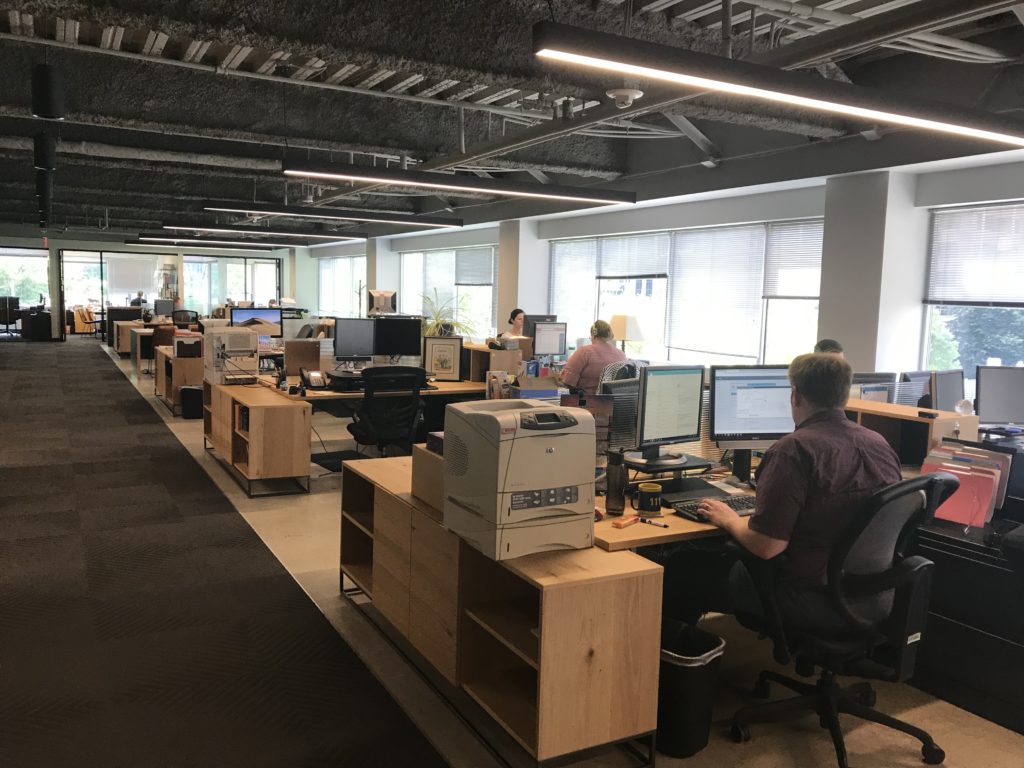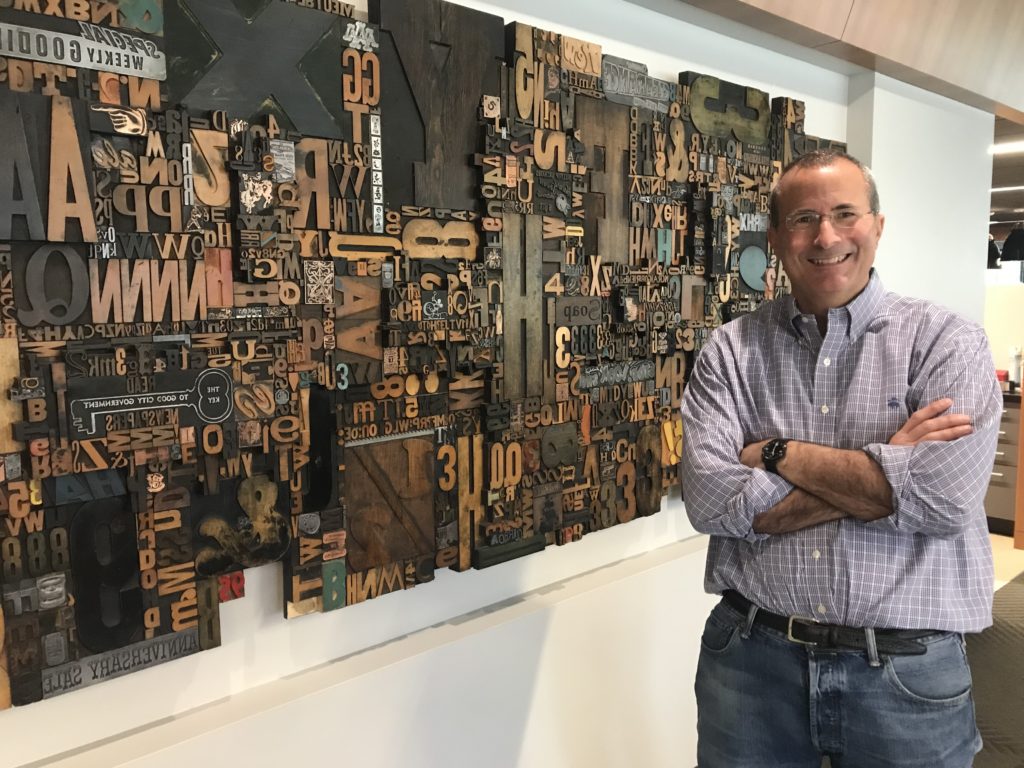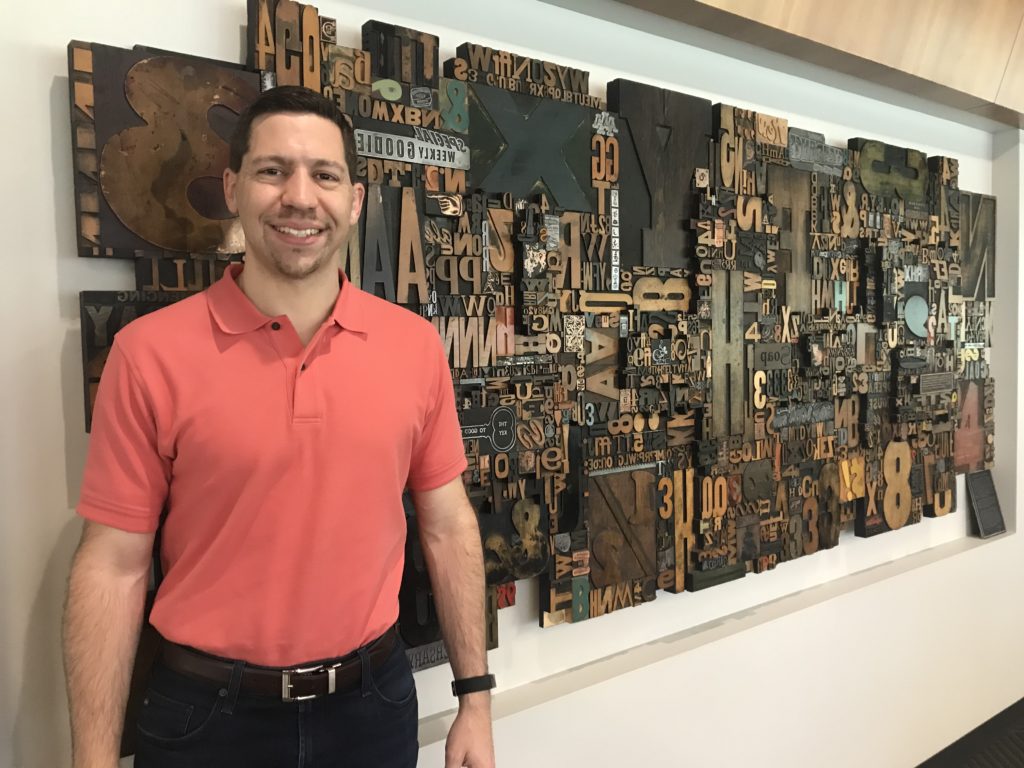People are more interested in the news these days. Part of that is due to the political climate, but part of it is that there’s an abundance of news and news-like content online, which often makes it difficult for readers to know whom to trust.
“The political situation we’re in now has actually made people much more consciously aware of journalism, and what good journalism is and what it isn’t,” said David Chavern, president and CEO of the News Media Alliance (NMA), a Ballston-based nonprofit that advocates for the news industry. “Journalism is much more central to people’s consciousness in public conversation than it was certainly three or four years ago, 10 years ago.”
The Trump presidency has certainly accelerated the public’s focus on journalism, according to Chavern, but more people are having a harder time knowing where their news is coming from.
“There’s always been conspiracy theories,” Chavern said. “They were usually delivered to you by a crazy uncle over the dining room table. And that was clearly different from what was on TV and what was in the newspaper and in the driveway. Those are three clearly different sources of information. In the internet blender, all that stuff is delivered exactly the same way and it puts a big burden on readers to pay attention to where things come from. And what stands behind them.”
NMA’s mission, along with its partner organization the American Press Institute (API), is to promote good journalism through advocacy, education and training.
“Journalism plays a central role in a democracy,” said Jeff Sonderman, API’s deputy executive director and executive vice president. “We want people to be informed of what’s happening both in their government and more broadly in their community. We want people, in any given place, to be able to have a shared conversation with each other about what’s happening here. What do we want to happen in this community? How are we making decisions together? And journalism is really the medium that facilitates that, that both creates a platform for it and also shapes it into a responsible platform.”
Before moving to its Ballston headquarters (4401 N. Fairfax Drive) in 2012, API hosted training seminars for journalists at a facility in Reston. As fewer and fewer newsrooms had the money to pay for these seminars, API shifted its business model toward online and in-person training, and research.
“We’re really interested in supporting changes in journalism that make it more innovative and use new technology and storytelling in data and science, but in the service of making those organizations sustainable financially and otherwise, so that they can continue to exist and do the work that’s really are the core of what we’re working on,” Sonderman said.
With accusations of “fake news” running rife through the industry, API has done a lot of research about mistrust of media in order to inform its newsroom training. It’s also partnered with the Trusting News organization to help newsrooms adopt practical, everyday strategies for instilling trust in readers.
“Trust is the foundation of the relationship that any journalist wants to have with an audience,” Sonderman said. “It’s difficult to do all these critical things about serving democracy and informing citizens if there isn’t a foundation of trust to build that on.”
“Newsrooms need to be more transparent about their process. Something as little as adding a sidebar to a story explaining why the news outlet thought it was important to cover the story and how the reporter researched it can go a long way toward establishing a trusting relationship with readers,” Sonderman said.
NMA’s other big push is to help its member organizations — 2,000 news publishers big and small — learn how to be sustainable online.
“People say information wants to be free, but it’s a funny thing. Reporters like to get paid,” said Chavern. “And by the way, we want reporters to get paid. We want journalism to come from professionals who actually know what that business is as opposed to either no journalism or a lot of fake news.”
While many news publishers continue to pull in revenue through print advertising, the business side of the industry day by day is becoming more digitally focused. That’s increasingly where the audience is and where newsrooms are heading.
“What we try to do is help our members, both develop ways to make a living online but also fight where we feel like we need to fight,” Chavern said. “And one of the areas where we think there’s some inequity is online people get a lot of their news through basically two big platforms, Google and Facebook, and those platforms take almost all of the digital ad revenue and return very little to news publishers.”
In the digital realm, the publishers no longer control their distribution chain. Google and Facebook send news outlets a large portion of their overall readership and they’re able to collect revenue off of it through ads and promotion fees.
“In the traditional print model, we had the most direct relationship you could have with a reader,” Chavern said. “We created a physical product every morning and we walked it up your driveway and handed it to you when you’re in your bathrobe. I mean, Goodyear doesn’t do that with your tires, right?”
NMA currently has a legislative initiative on Capitol Hill that would allow news publishers to collectively bargain with the major platforms. They believe this is necessary in order for them to become sustainable online.
“We need trusted sources of info to keep our society together,” Chavern said. “And if we don’t have trusted sources of information, things get ugly real quick. I would ask the public to both pay close attention to where the information you read comes from and to support those people who provide you trustworthy information. Journalism isn’t a free thing and it shouldn’t be. It’s valuable. So it’s OK that it be valued and please support journalism at every level.”






